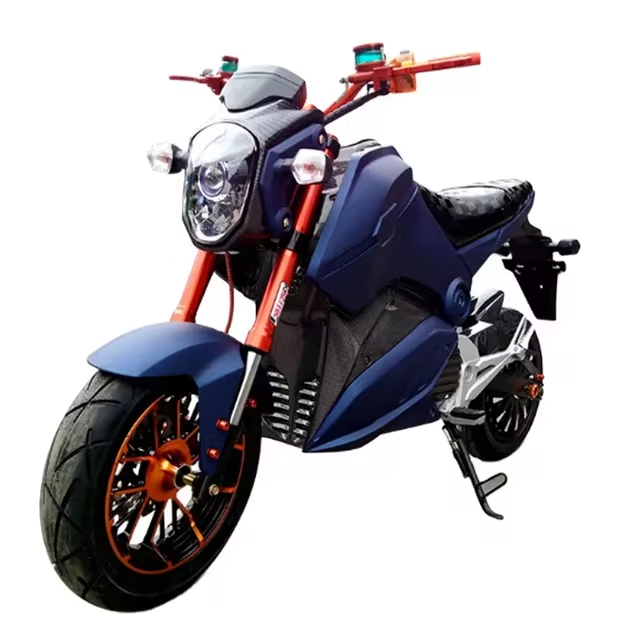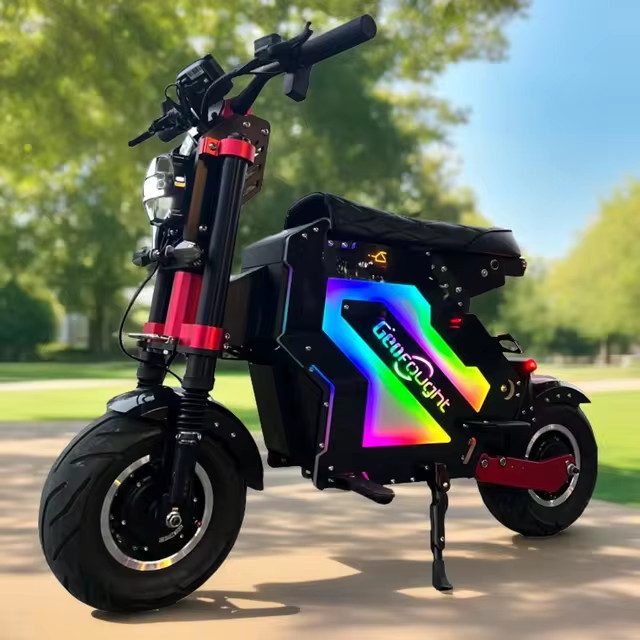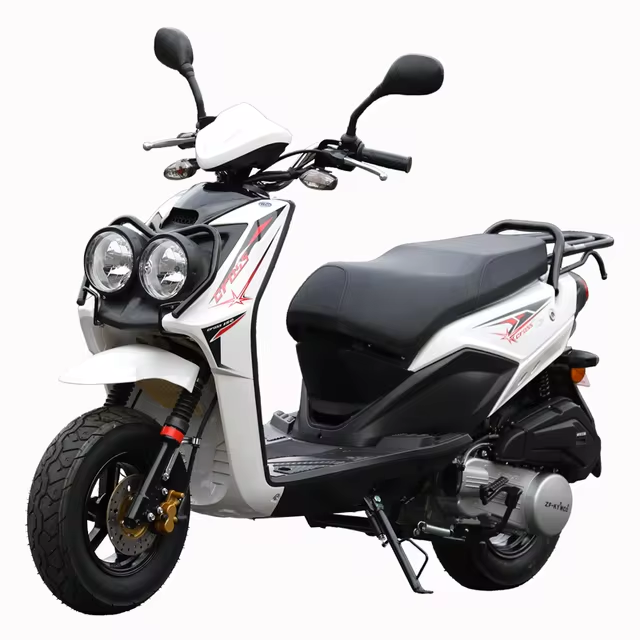Introduction to Getting a Motorcycle License in NC
Navigating the requirements for obtaining a motorcycle license in North Carolina can seem complex. It’s important to understand how to get a motorcycle license in NC, from the initial learner permit to the full endorsement. This guide offers a clear path to help you through the process.

In North Carolina, to legally operate a motorcycle, you must either have a motorcycle learner permit or a full motorcycle endorsement. These elements are key to ensuring that all riders have the necessary knowledge and skills for safe riding.
You will need to pass several tests, including a knowledge exam and an on-road skills test. Additionally, for those under 18, a motorcycle safety course is mandatory, and so is parental consent. The process is designed to equip you with the fundamentals of motorcycle operation and safety.
Whether you’re a young rider just starting or an adult seeking to explore the open roads on two wheels, the detailed steps provided in this guide will assist you in securing your motorcycle license in North Carolina. Let’s kickstart your journey to freedom on the highways with confidence and safety in mind.
Eligibility Requirements for a Motorcycle License
Getting a motorcycle license in NC starts with meeting the eligibility criteria.
Age and License Type Requirements
You must be at least 16 years old to apply for a motorcycle learner permit. If you’re between 16 and 18, you need a full provisional license first. Everyone must have a valid driver license, whether it’s provisional, regular, or commercial, to qualify.
Documentation and Parental Consent for Minors
Minors must prove their age with a legal document, like a birth certificate or a passport. Alongside this, they need a parent or guardian’s signature. This shows consent for the minor to learn and operate a motorcycle. This step is crucial to ensure that those under 18 have the support and permission of their guardians for motorcycle training and use.
 Step-by-Step Application Process
Step-by-Step Application Process
Navigating the application process for a motorcycle license in North Carolina involves two primary steps. Here, we will break down the process starting with how to apply for a motorcycle learner permit, then how to upgrade to a full motorcycle endorsement.
Applying for a Motorcycle Learner Permit
To get started, applicants must firstly have a valid North Carolina driver license. This can be a provisional, regular, or commercial license. If you are between 16 and 18 years old, the law requires holding a full provisional license. You must also obtain consent from a parent or guardian if under 18, ensuring they are on board with your decision to operate a motorcycle.
The next step involves passing several tests. These include a motorcycle knowledge test, road sign identification, and a vision test. Successfully completing a motorcycle safety course is also mandatory for applicants under 18. The courses are available through institutions like the Motorcycle Safety Foundation and North Carolina Motorcycle Safety Education Program.
The learner permit is valid for 12 months and can be renewed once for an additional six months.
Upgrading to a Full Motorcycle Endorsement
Once you have your learner permit, the next step is upgrading to a full motorcycle endorsement. This is crucial for those who want to ride without restrictions. Applicants must again pass the motorcycle knowledge test, followed by an off-street motorcycle skills test.
Keep in mind that motorcycle road tests are by appointment only, and are usually set up on Tuesdays, Wednesdays, and Thursdays, weather permitting. Making an appointment ahead of time is therefore essential. Once you pass these tests, you will be granted the motorcycle endorsement, marking your full qualification to ride a motorcycle in North Carolina.
By following these outlined steps, securing a motorcycle license in NC can be a straightforward process.
Motorcycle Knowledge and Skills Tests
To secure a motorcycle license in NC, you must clear both knowledge and skills tests. These assessments make sure riders have a firm grasp of road rules and can handle a motorcycle safely. Mastery of the material in these tests is essential for your safety and the safety of others on the road.
What to Expect in the Knowledge Test
The knowledge test features multiple-choice questions about motorcycle law and safety practices. You’ll need to study the Motorcyclists’ Handbook from the N.C. Division of Motor Vehicles, as it covers all you need to know. Expect questions on traffic laws, safe riding techniques, and how to handle emergencies. Preparing for this test is crucial – it forms the foundation of responsible riding. Aim to pass this test with confidence by giving ample time for study.
Skills Test: What You Need to Know
After passing the knowledge test, you’ll take the skills test. This on-road assessment checks your ability to operate a motorcycle. You’ll need to show how to signal, turn, and brake correctly. The tester will also check your skills in swerving and emergency stops. Scheduling an appointment is necessary, as tests happen on select days and are weather dependent. Passing the skills test proves you can ride a motorcycle safely on public roads. Focus on practicing your riding skills before taking this test. Use all safety gear during practice to make it a habit for real rides.
Motorcycle Safety Courses
Importance of Safety Courses
Motorcycle safety courses are vital for riders. They teach essential skills for safe riding. In North Carolina, these courses also fulfill legal requirements for riders under 18. Safety courses help decrease the risk of accidents. They provide training in handling a range of road situations. You learn about protective gear and its use. Such courses often result in better insurance rates. They also keep you updated on motorcycle laws and safety practices.
Available Courses in North Carolina
North Carolina offers multiple motorcycle safety courses. The Motorcycle Safety Foundation provides widely recognized training. The North Carolina Motorcycle Safety Education Program is another option. These courses cover both basic and advanced riding skills. They range from beginner classes to more advanced skill training. Local community colleges may also offer motorcycle safety classes. Ray Price Harley Davidson in Raleigh provides a notable course. Completing a course at such institutions may exempt you from the DMV’s riding test. Check with your local DMV for a list of approved training providers. Always ensure courses are state-approved for your learning permit or endorsement.
 Renewing and Maintaining Your Motorcycle License
Renewing and Maintaining Your Motorcycle License
Maintaining a valid motorcycle license in North Carolina requires attention to renewal processes. This section will guide you through renewing your motorcycle learner permit and endorsement, ensuring you stay compliant and safe on the road.
Renewal Process for Motorcycle Learner Permit
In North Carolina, a motorcycle learner permit is valid for 12 months. You can renew it once for six additional months. To renew your permit, you need to visit your local DMV office before your current permit expires. Bring your identification, current permit, and renewal fee. There are no additional tests for renewing a learner permit. However, keeping track of the expiration date is crucial to avoid riding with an expired permit.
Conditions for Motorcycle Endorsement Renewal
Renewing a motorcycle endorsement involves more specific conditions. The endorsement is typically valid for eight years. You need to renew your motorcycle endorsement when you renew your driver license. It’s important to check the DMV notice for any additional requirements or changes. Often, you won’t need to retake the knowledge or skills tests unless your license has been expired for more than a year. Timely renewal helps prevent any disruption in your ability to ride a motorcycle legally.
